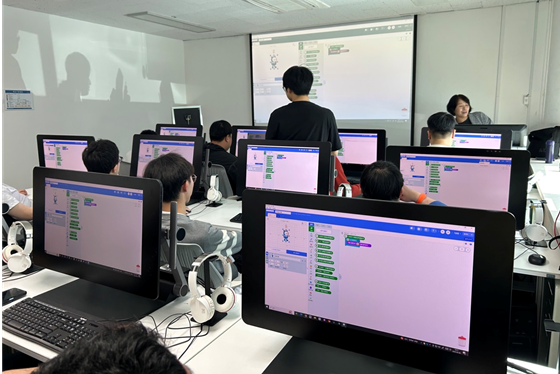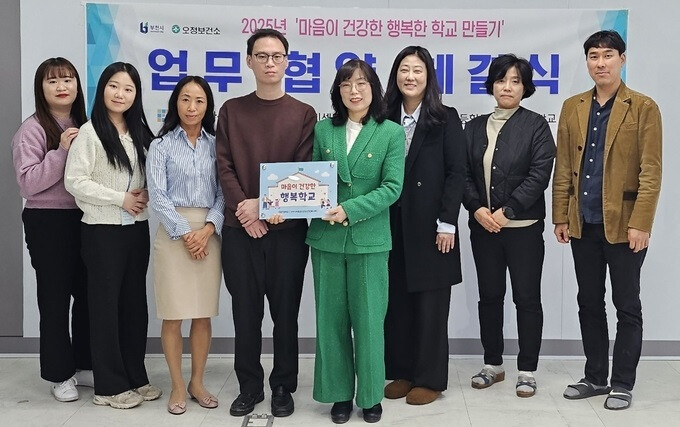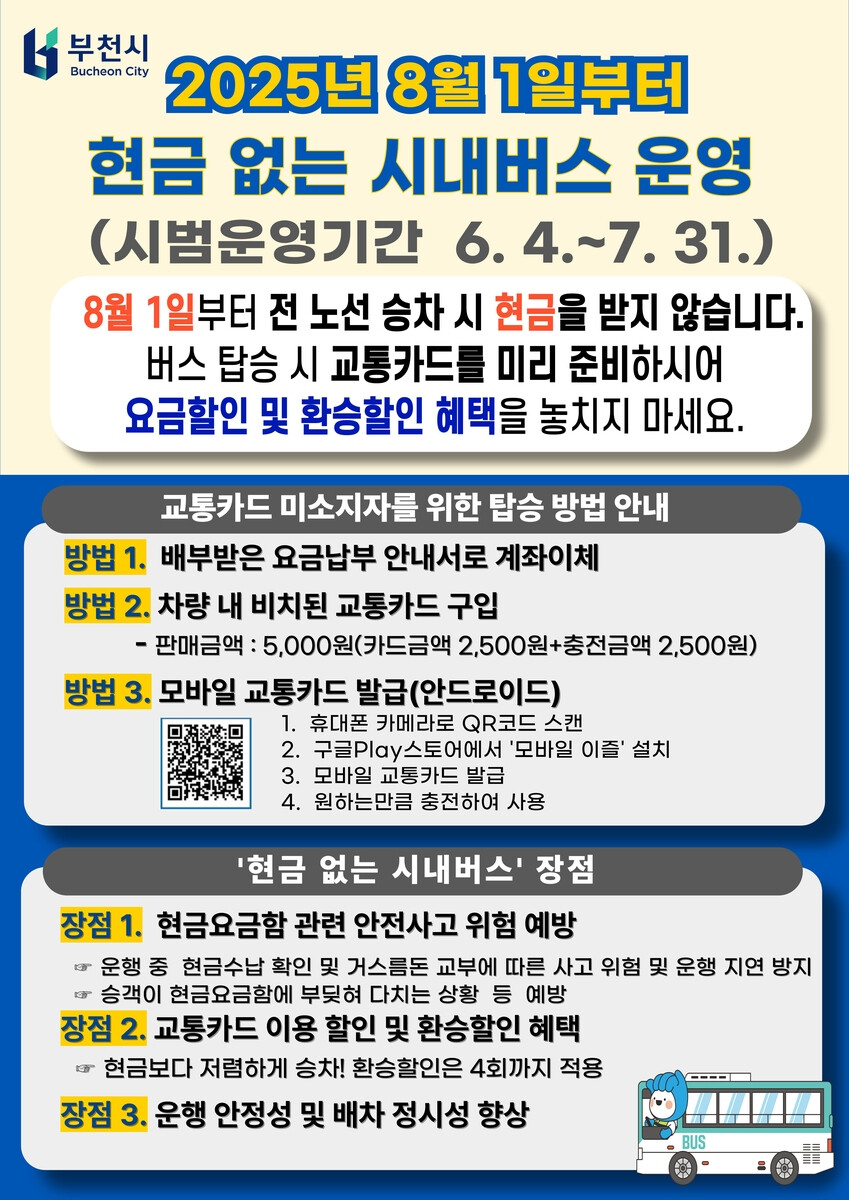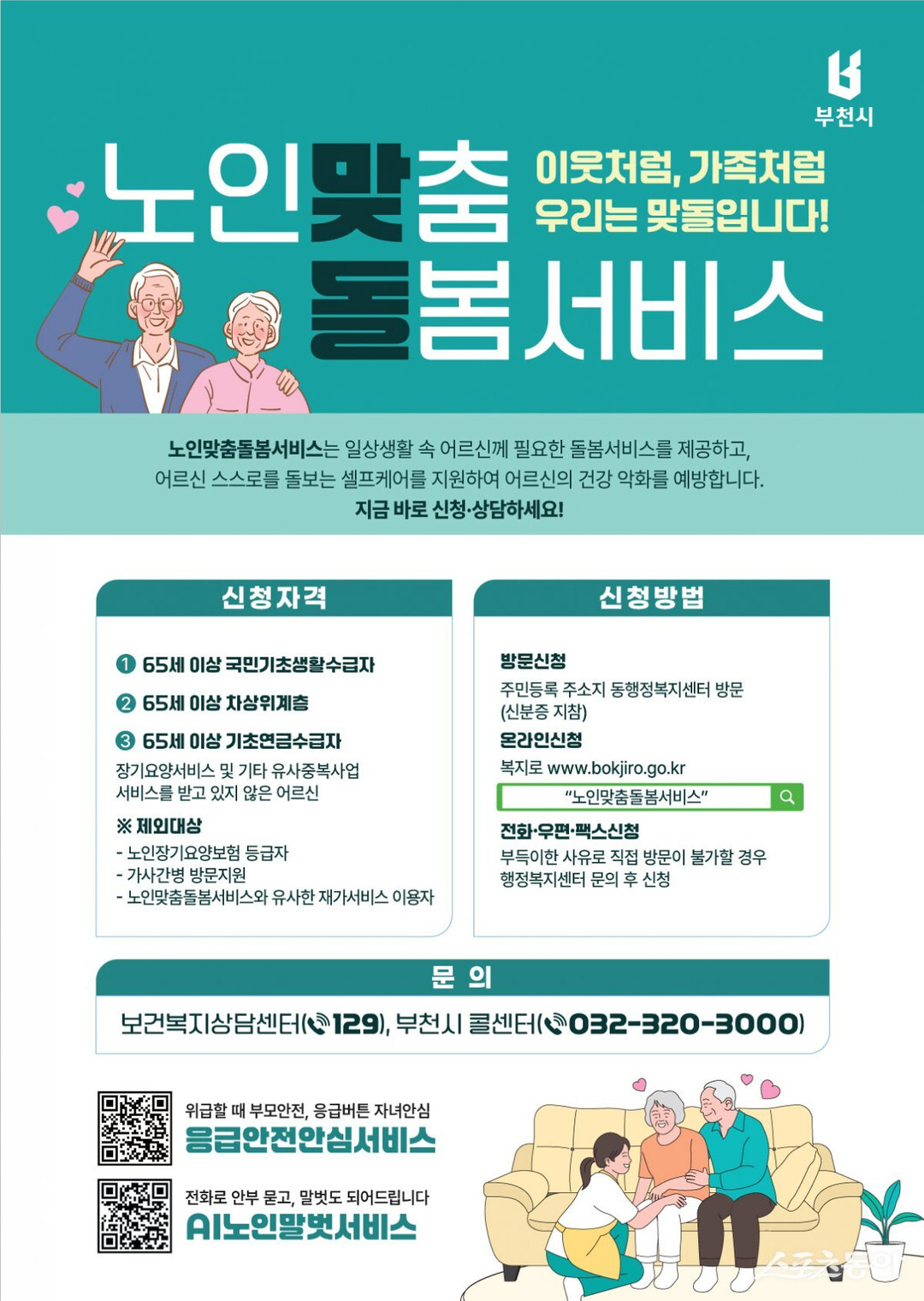
BUCHEON, May 23, 2025 – The Bucheon Welfare Center for the Disabled (hereafter, Bucheon Welfare Center), under the leadership of Director Lee Hyo-min and with the support of Gyeonggi Province and Bucheon City, is breaking new ground in lifelong learning for individuals with disabilities. As part of its '2025 Lifelong Education Program for the Disabled,' the center has launched a pioneering coding education initiative specifically for adults with developmental disabilities. This proactive effort is lauded for its commitment to ensuring that individuals with disabilities are not marginalized in our rapidly evolving digital age, empowering them to strengthen their capabilities as active members of society.
Empowering Through Digital Literacy: A Focus on Independence
This coding program is meticulously designed to enhance problem-solving skills among adult participants with developmental disabilities. The curriculum utilizes block coding, an intuitive visual programming method, to foster computational thinking. This approach encourages participants to independently discover solutions when faced with real-world problems. The comprehensive eight-month program is expected to significantly contribute to participants' systematic acquisition of digital skills and the cultivation of logical reasoning abilities.
Currently, 12 adult participants are engaged in the initial six-month basic course. Upon completion, a more advanced curriculum will be offered in a study group format, emphasizing a long-term roadmap that extends beyond a singular educational experience, equipping participants with practical digital competencies through continuous learning. Block coding, favored for its accessibility, allows individuals to program by combining visual blocks rather than complex text-based languages. This method is particularly effective for individuals with developmental disabilities as it simplifies the understanding of fundamental coding principles and ignites their interest.
Building Foundations for Social Independence
A representative from the Bucheon Welfare Center stated, "Through this education, we plan to actively support adults with developmental disabilities in effectively acquiring digital skills and enhancing their capacity for social independence." In the information age, digital literacy transcends mere technical proficiency, becoming an indispensable component of social participation and economic activity. For individuals with developmental disabilities, coding education offers more than just vocational training; it plays a crucial role in improving their logical thinking, problem-solving capabilities, and ultimately, their independent living skills. Furthermore, it contributes to bridging the information gap by increasing their understanding of the digital environment and fostering self-confidence as contributing members of society.
The Crucial Role of Lifelong Education and the Bucheon Welfare Center
The Bucheon Welfare Center has consistently strived to expand lifelong learning opportunities for individuals with disabilities. Lifelong education for the disabled is a cornerstone for improving their quality of life, promoting social integration, and ultimately facilitating their independence. The current coding education program, backed by Gyeonggi Province and Bucheon City, exemplifies a collaborative model between local government and welfare institutions that recognizes the paramount importance of lifelong learning and provides tangible assistance to individuals with disabilities.
Given their unique learning needs, individuals with developmental disabilities often require tailored educational programs and sustained support to acquire new skills and adapt to society. The Bucheon Welfare Center's coding initiative addresses this critical need, offering these individuals a chance to unleash their potential in the digital realm. Moving forward, the center plans to continuously develop and implement customized lifelong education programs that cater to the specific characteristics and demands of individuals with disabilities across various fields, extending beyond coding.
For more detailed information about the program, please visit the Bucheon Welfare Center for the Disabled website at https://www.pchand.or.kr/. Inquiries can also be directed to the Culture & Leisure Team at 032-670-1221. This coding education is poised to unlock new possibilities for individuals with developmental disabilities and is expected to set a new benchmark for lifelong education initiatives for the disabled.
+++++++++++++++++++++++++++++++++++++++++++++++++++++++

Bucheon City Bolsters Student Mental Health Support with "Healthy Minds, Happy Schools" Initiative
BUCHEON, May 22 – Bucheon City, in collaboration with the Bucheon Child and Adolescent Mental Health Welfare Center, is expanding its "Healthy Minds, Happy Schools" initiative, signing memorandums of understanding (MOUs) with three local schools to provide comprehensive mental health services to students. This proactive step underscores the city's commitment to fostering emotionally resilient and socially well-adjusted young people.
The program, now in its fourth year, has steadily grown, having supported two schools last year and expanding to three this year. The latest partnerships include Wonjong Elementary School (MOU signed March 17), Seongju Middle School (MOU signed March 27), and Sosa Elementary School (MOU signed April 7). These agreements pave the way for a year-long provision of tailored mental health services designed to address the diverse needs of students.
Services offered under the "Healthy Minds, Happy Schools" initiative are multifaceted and aim to create a supportive environment for students' mental well-being. They include:
Mental Health Education: Comprehensive programs designed to raise awareness and understanding of mental health issues among students, teachers, and parents.
Prevention Campaigns: Proactive outreach efforts to destigmatize mental health and promote positive coping mechanisms.
High-Risk Group Programs: Targeted group therapy and support for students identified as needing more intensive intervention.
Mobile Counseling Rooms: "Pop-up" counseling services brought directly to the schools, ensuring accessibility and reducing barriers to seeking help.
Dedicated Teacher Counseling Hotline: A confidential support line specifically for educators, providing resources and guidance on addressing student mental health concerns.
Previous participants in the program have reported significant positive changes, including improved peer relationships, a deeper understanding of mental health, and a reduction in negative perceptions surrounding mental illness. These outcomes highlight the effectiveness of school-based interventions in promoting holistic student development.
Kim Eun-ok, Director of the Bucheon City Public Health Center, emphasized the critical role of such initiatives. "School-based mental health support is tremendously beneficial for students' emotional resilience and their ability to form healthy social connections," she stated. "We are dedicated to strengthening our support for mental health issues to ensure our children and adolescents can grow into healthy, thriving individuals."
The "Healthy Minds, Happy Schools" initiative in Bucheon aligns with a growing global recognition of the importance of addressing mental health in educational settings. The World Health Organization (WHO) and UNICEF advocate for school-based mental health programs, emphasizing that schools are ideal environments for promoting well-being, identifying at-risk individuals, and providing early intervention. Studies have shown that mental health issues among adolescents, if left unaddressed, can significantly impact academic performance, social development, and overall quality of life.
In South Korea, there has been an increasing focus on student mental health, particularly in the wake of societal pressures and academic stress. Initiatives like Bucheon's reflect a proactive approach by local governments to implement practical solutions. Beyond direct student support, such programs also empower educators and parents, equipping them with the knowledge and tools to identify and respond to mental health challenges. This holistic approach, involving students, educators, families, and community resources, is crucial for building a resilient and supportive ecosystem for young people.
The expansion of the "Healthy Minds, Happy Schools" program to more schools in Bucheon signifies a continued commitment to this vital area. By investing in the mental well-being of its students, Bucheon City is laying the groundwork for a healthier, happier, and more productive future generation.
+++++++++++++++++++++++++++++++++++++++++++++++++++++++++++++++

Bucheon to Implement Cashless Bus System Starting August, Aiming for Enhanced Safety and Efficiency
BUCHEON, GYEONGGI PROVINCE – Bucheon City announced on May 23rd that it will launch a "cashless city bus" system beginning in August, a move set to modernize public transportation and improve operational efficiency and safety. The initiative will see all 733 city buses across 51 routes no longer accepting cash payments, requiring passengers to use transportation cards or credit cards for fares.
This shift reflects a growing global trend towards cashless transactions, driven by convenience, security, and the streamlining of services. For Bucheon, the primary goals are multifaceted. "We expect the operation of cashless city buses to enhance both operational safety and punctuality of dispatches," stated a Bucheon City official. By eliminating the need for bus drivers to handle cash payments and calculate change, the city anticipates a significant reduction in driver distractions, allowing them to focus more intently on driving and passenger safety. This, in turn, is expected to contribute to fewer accidents and a smoother, more reliable service.
To ease the transition for citizens, Bucheon City has outlined several alternative payment methods for those without immediate access to a transportation or credit card. Passengers can transfer the fare directly to a designated bank account, details of which will be provided on information notices within the bus. Additionally, pre-loaded transportation cards will be available for purchase on board for 5,000 won (2,500 won for the card itself and 2,500 won in pre-loaded credit). The city also encourages the use of mobile transportation cards, which can be easily issued and utilized through smartphone applications.
Before the full-scale implementation in August, Bucheon will conduct a pilot operation from July 4th to July 31st. During this trial period, cash boxes will remain in place, allowing passengers to gradually familiarize themselves with the new payment options without immediate disruption. This phased approach aims to minimize inconvenience and address any unforeseen issues before the official launch.
The move to a cashless system is also expected to improve the punctuality of bus services. The time saved from not having to process cash transactions is anticipated to lead to faster boarding times and more consistent adherence to schedules. This efficiency gain is crucial for a bustling city like Bucheon, where timely public transport is vital for commuters and residents alike.
Furthermore, the city official encouraged greater adoption of transportation cards, emphasizing that they often offer a cheaper fare compared to cash payments. This financial incentive is a common strategy employed by public transport authorities to encourage cashless transactions, which are generally more efficient and easier to track for data analysis.
While the transition may pose initial challenges for some, particularly elderly citizens or those less familiar with digital payment methods, Bucheon City is committed to providing adequate support and information to ensure a smooth transition for all passengers. The city plans to disseminate detailed guides and conduct public awareness campaigns to educate residents on the new payment procedures and the benefits of the cashless system.
Bucheon's initiative aligns with broader national efforts in South Korea to promote digital payments and smart city solutions. Many other major cities in the country have already adopted or are in the process of adopting similar cashless systems for their public transportation networks. This move is a significant step forward in modernizing Bucheon's public transit infrastructure, promising a safer, more efficient, and more convenient travel experience for its citizens.
++++++++++++++++++++++++++++++++++++++++++++++++++++++++++++

Bucheon City Boosts Senior Care with Intensive 'Personalized Elderly Care Service' Promotion
BUCHEON, May 25, 2025 – Bucheon City (Mayor Cho Yong-ik) announced today a six-week intensive promotional campaign for its 'Personalized Elderly Care Service', running from May 26 to June 30. This initiative aims to ensure that seniors requiring assistance can enjoy a more stable and healthier later life, actively identifying those in care blind spots and enhancing public awareness and accessibility to the service.
The 'Personalized Elderly Care Service' is designed for seniors aged 65 and older who experience difficulties in daily life. Eligible recipients include those receiving basic livelihood benefits, the next lower income bracket, or basic pension recipients. The program focuses on providing tailored care through dedicated living support specialists who visit seniors' homes one-on-one. Key services include safety support (well-being checks, living environment safety assessments, companionship) and daily life support (mobility and activity assistance, household chores).
Expanding Beyond Basic Needs: Holistic Support for Seniors
Beyond these core services, the program offers a comprehensive suite of support designed to foster emotional stability and independent living. This includes operating social participation programs, providing physical and mental health education, and offering linked services related to living, housing, and health. Crucially, seniors at risk of depression or social isolation receive intensive support through individualized case management.
"Through this intensive promotion, we anticipate identifying more seniors in need of care and connecting them with practical support," stated a Bucheon City official. "We are committed to building a more robust and compassionate care system, ensuring that essential services reach every senior who needs them, precisely when they need them."
Application and Outreach Efforts
Applications for the Personalized Elderly Care Service can be made by the individual or a proxy by visiting their local administrative welfare center with identification. Online, telephone, and postal applications are also accepted, ensuring convenience and accessibility.
To maximize community engagement, Bucheon City plans a multi-pronged approach to promotion. Offline efforts will involve collaborations with administrative welfare centers and service providers. Online channels will be actively utilized, including city hall website banners and bus stop advertisements. Furthermore, the six organizations responsible for service delivery will conduct various outreach activities tailored to the elderly, such as street campaigns and visits to relevant institutions, ensuring the message resonates effectively with the target demographic.
This concentrated effort by Bucheon City underscores its commitment to creating a supportive and inclusive environment where all seniors can thrive, live with dignity, and access the care they deserve. The 'Personalized Elderly Care Service' is a testament to the city's dedication to building a community that truly cares for its elderly population.
[Copyright (c) Global Economic Times. All Rights Reserved.]



























